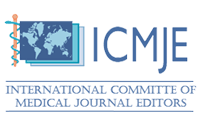Fructose Intake and Circulating Triglycerides: An Examination of the Role of APOC 3
Eric Campbell
Affiliation
Department of Nutrition and Food Science, University of Maryland, College Park, MD 20742, USA
Corresponding Author
Thomas W. Castonguay, Department of Nutrition and Food Science, University of Maryland, College Park, MD 20742, USA, Tel: 301 405-4503; E-mail: twc@umd.edu
Citation
Thomas, W.C., et al. Fructose Intake and Circulating Triglycerides: An Examination of the Role of APOC 3 (2014) J Diabetes Obes 1(1): 14- 20.
Copy rights
© 2014 Thomas W.C. This is an open-access article distributed under the terms of the Creative Commons Attribution 4.0 International License.
Keywords
Abstract
Fructose consumption can lead to marked increases in plasma triglycerides in both humans and laboratory animals. We have observed that overnight access to a 16% fructose solution can promote hypertriglyceridemia in rats. Several investigators have suggested that APOC 3 may be implicated in promoting fructose-induced hypertriglyceridemia. We have examined the role of APOC 3 in liver and blood taken from rats that had been given access to a fructose solution overnight as a supplement to standard laboratory chow. Hepatic APOC3 mRNA expression from fructose alone resulted in a 14 % reduction compared to control. Interestingly, hepatic APOC3 expression was increased by about 250% in sucrose, high fructose corn syrup and glucose groups. The serum protein levels of APOC3 did not differ across groups. Contrary to our hypothesis, these results indicate that glucose containing sugars increased hepatic APOC3 mRNA expression but no sugar was capable of increasing the serum protein level.












